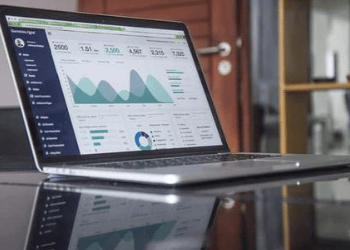If you’re in over your head in debt, it can feel like it will never get better. You try to pay off one debt but then get in further with another. Then what?
Fortunately, it’s not as hard as it seems to get out of debt, but you have to have a plan. Here are the best ways to get out of debt and get control of your finances again.
Figure out Why you Got Into the Situation
Before you can do anything, figure out what got you into this situation. Ask yourself:
.jpg?update=2)
Did I use credit cards as an extension of my income? Did I buy things I could afford?Am I living outside my means, with bills that I can’t afford?
Did I only make the minimum required payments each month?
Did I apply for new credit cards unnecessarily?
Knowing why you are in the situation you’re in is the first step to getting out of it. Once you recognise the habits, you can stop them and pick up the pieces to get yourself out of debt. So how do you do that? Here are the top X ways.
Create a Budget
You can’t get out of debt without a budget. A budget is a map for your money. It tells your money where it needs to go. In that budget, include money to pay off your debt. At first, it may only be the minimum required payments because it’s all you can afford.
As you get used to having a budget, though, find ways to cut back. Stop eating out, grabbing coffees at Starbucks, getting your hair or nails done, or impulse shopping. Any money you save, budget toward your debt payoff.
Eventually, you’ll find that your line item for paying off debt is much higher than when you started. This will get you well on your way to paying off your debt.
Try the Debt Snowball Plan
Once you have an idea of how much money you can put toward your debts, try the debt snowball plan. It’s a simple program that helps you get out of debt fast. Here’s how it works:
i) Order your debts from smallest balance to largest (ignore the APR for now)
ii) Budget for the minimum required payment for each debt
iii) Take any extra money in your budget and put it toward the smallest debt
(the first in line)
iv) Keep doing this until you pay the first debt off
v) You’ve had your first small win
vi) Take the same amount (minimum payment plus extra money) and apply it to the next debt in line, adding it to that card’s minimum payment
vii) Keep doing this until you are out of debt
As you can see, the debt snowball plan gradually creates a larger snowball that wipes your debt out.
Consider Using your Home Equity
If you don’t have the patience for the debt snowball method, look at your home. Do you have equity in it?
Equity is the difference between your home’s value and what you owe in a mortgage. If you have over 20% equity in the home, you can tap into it, using the funds to pay off your debts.
Using a home equity loan to pay off your debts is often the smartest way because home equity loans have such low interest rates. You can save money on interest and only have one monthly payment rather than several.
The key to making this method work, though, is to avoid racking up credit card debt again. If you zero out your credit cards, don’t use this as a free pass to use them again. Instead, lock them up and put them away so you don’t use them anymore.
Work with your Creditors on a Payment Plan
If you aren’t eligible for a home equity loan and the debt snowball method doesn’t work for you, consider talking to your creditors.
You’d be surprised today at how many creditors will work with you if you’re honest with them. With the pandemic going on, most creditors will come up with a payment plan that helps you make your payments and get out of debt.
Some may offer lower interest rates to help you get ahead and others may offer payment plans that allow a fixed payment, giving you the chance to pay your debt off in a specific amount of time.
Don’t Ignore your Debts
The most important thing is to not ignore your debts. It can be tempting to pretend they don’t exist, but this won’t help your credit or the amount of interest you owe.
If you can’t make your payments, talk to your creditors. Be honest about your situation. They may be able to defer your payments or give other options that make your payments more affordable until you get back on your feet.
Once you do, choose a debt payoff plan that works for you so you can get ahead of the debt and put it behind you.
Final Thoughts
Getting out of debt doesn’t have to feel so overwhelming. If you look at the big picture, yes it can make you feel like you can’t breathe.
Instead, break it down into small chunks. Figure out what you can afford now and the best way to apply that money to help you get out of debt. Throwing money at your debts without a plan won’t work, no matter the situation. Instead, create a plan and follow through on it.
Before you know it, you’ll have your debts paid off and your credit score will increase because you reduced your outstanding credit compared to your credit lines. When you do pay off your credit cards, don’t close them – leave them open so it helps your credit score. The older credit increases your credit score and the low utilisation ratio helps even more.
Find the debt payoff plan that works for you and get out of debt once and for all!
Car insurance costs money. That's not exactly big or groundbreaking news, but the fact is, for many people, car insurance is not cheap and can have a large impact on their financials. There are so many companies, plans, and coverages to choose from. Read the article to save money....
Rideshare insurance helps fill in the gaps that your personal auto policy doesn’t do. While it isn’t necessarily obligated, it is wise to purchase. Consider this: Your personal insurance policy doesn’t cover the transportation of people from various places, nor does it protect you from accidents that....
Credit is definitely a factor considered to determine risk and is used by many U.S. insurance companies. These insurance companies each use different metrics to determine your insurability, including age, driving history and accident record. As a result, getting car insurance with bad credit...
We respect your privacy. Your privacy is our policy.
.jpg?update=2)
Car insurance costs money. That's not exactly big or groundbreaking news, but the fact is, for many people, car insurance is not cheap and can have a large impact on their financials. There are so many companies, plans, and coverages to choose from. Read the article to save money.

Rideshare insurance helps fill in the gaps that your personal auto policy doesn’t do. While it isn’t necessarily obligated, it is wise to purchase. Consider this: Your personal insurance policy doesn’t cover the transportation of people from various places, nor does it protect you from accidents that......

Credit is definitely a factor considered to determine risk and is used by many U.S. insurance companies. These insurance companies each use different metrics to determine your insurability, including age, driving history and accident record. As a result, getting car insurance with bad credit....
© 2021 SaveTo Smile. All Rights Reserved.